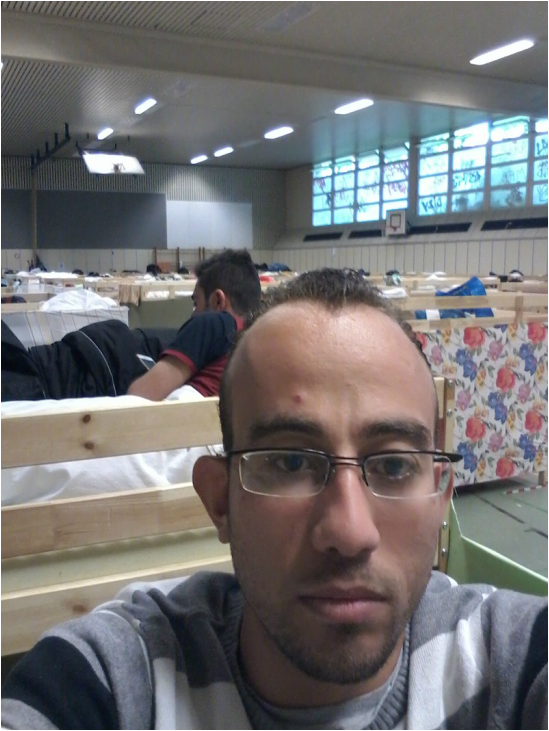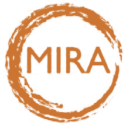
We took a break for one full hour, and at that point you could see light on the horizon — morning had come. A car came by and we stopped it. The man inside said we were far from the city and where the refugees were staying. But he was heading back there and would inform a taxi driver that we needed a ride. Indeed, after around 30 minutes, taxis came and transported us to a port on the island of Samos. There were more refugees who were applying for an exit application to a nearby country. After two days on the island, I was allowed to leave. I booked a seat on a boat scheduled to take us to the city of Kafala, close to the Macedonian border.
Indeed at 6:00 that morning, we boarded the boat and departed towards that city. The journey took 14 hours until we reached Kafala and were then transported to the Macedonian border. The process took a whole night, but the next morning I was able to receive my exit papers for Macedonia and booked a train ticket to Serbia. The number of people was huge and the train would not fit everyone so we had to sit on the floor. The children were almost suffocating from the amount of pressure inside the train compartment.
The train left for Serbia at around 2:00 in the afternoon and the journey was five hours. In the evening, we reached the border between Macedonia and Serbia. We entered Serbia by foot, around 3 kilometers. We then encountered a group of taxis that drove us to the refugee reception centre for registration. We got our exit papers at 1:30 am and I was then able to continue my journey. I got into a truck by the reception centre. At 2:00 am we left from southern Serbia through the capital Belgrade to northern Serbia and the Serbian-Croatian border. That was the last time I would have Internet. I did not realize that the rest of the journey was going to take place without any form of communication to let my family know that I was alive and still moving forward. The road we was almost a no-man’s-land — there was not even a store to buy a SIM card.
On the Croatian border, the Red Cross and other aid agencies welcomed us and told us that the borders ahead of us were still open so we wouldn’t be stopped. We did the usual, going to the refugee centre and getting some food and a medical check for those with health issues. Finally we received exit papers allowing us to head to Slovenia. This was a country whose name made me tremble as I wrote it — not out of fear, but out of the bitterness of what we have experienced on this piece of land.
We got to the Slovenian border at 4:00 am and it was still dark. At the crossing, we sat in a very big square on the edge of a valley cut in half by a river. We waited for the Slovenian border to open and it was very cold with a few drops of rain. Light from beyond the border was very bright.
You could hear the sound of babies crying and fighting with the Slovenian border control, and could see the smoke of fire lit by people trying to get some warmth. Two hours of waiting and then we heard an announcement: the borders were open. I rushed to cross and one of the guards walked us to the reception centre 30 minutes away on foot. We got to an open space surrounded by barbed wire, this is simply the only way I can describe it. We were offered food and water, but weren’t allowed to leave and were asked to wait.

We stayed there for three days, sleeping on the floor without permission to speak. We were treated like a dictator would treat his people. Three days later, at 4 in the afternoon, we were transported to the Slovenian-Austrian border, to yet another reception centre, this time however with no exit papers. We were then taken to another shelter in the city of Graz in Austria, but this one was very clean and warm, and had signs of life.
The authorities there told us that whoever wanted to apply for asylum in Austria had to head to their offices and submit an application. Some people wanted to and others like me wanted to continue onto Germany. The next day, we were taken to the train station and got on a train headed to Germany. We go to the German border at 9 in the morning.
To be continued..…in the final episode.
Age: 26
Country of Origin: Syria
Host Country: Germany
Civil Status: Married to Alaa, with two children (wife and children in Jordan)
